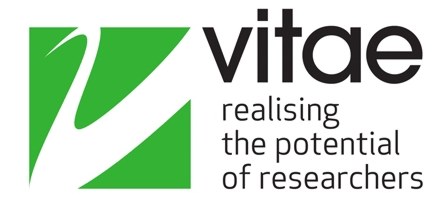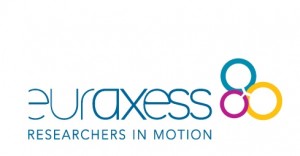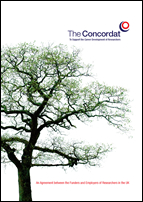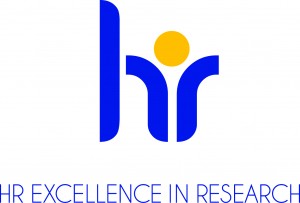 Welcome to the Research Staff part of the BU Research Blog! In this section you can find out information about our Research Staff Association, training and development opportunities for research staff, careers guidance, and what BU is doing to transition to and implement the 2019 Concordat to Support the Career Development of Researchers.
Welcome to the Research Staff part of the BU Research Blog! In this section you can find out information about our Research Staff Association, training and development opportunities for research staff, careers guidance, and what BU is doing to transition to and implement the 2019 Concordat to Support the Career Development of Researchers.
Vitae is the UK organisation championing the personal, professional and career development of doctoral researchers and research staff in higher education institutions and research institutes, and they often run courses and events aimed specifically at staff and postgraduate researchers. The Vitae website is an excellent source of information for researchers and managers of researchers – http://www.vitae.ac.uk/
BU Code of Practice for the Recruitment and Career Development of Research Staff
Since 2014, BU has published its Code of Practice for the Recruitment and Development of Research Staff. The code provides guidance on the University’s expectations for the recruitment, support, management and development of research staff in line with the Concordat to Support the Career Development of Researchers (2008) and the European Charter for Researchers (2005). It is relevant to research staff and their managers as well as to BU staff in general. It has been written by the University’s Research Concordat Steering Group and is one of the objectives from our action plan to further align BU’s policy and practice to the seven principles of the Concordat and to further improve the working environment for research staff at BU. These will be reviewed as BU transitions to the new Concordat, launched in 2019.
BU Research Staff Association
Formed in 2014, the BU Research Staff Association (RSA) is a forum to promote BU research culture. Research staff from across BU are encouraged to attend to network with others researchers, disseminate their work, discuss career opportunities, hear updates on how BU is implementing the Research Concordat, and give feedback or raise concerns that will help to develop and support the research community at BU. Find out further information here:
Training and development opportunities for researchers
 The Research and Knowledge Exchange Development Framework (RKEDF) offers a range of opportunities for academics at all career stages to develop their skills, knowledge and capabilities in relation to research and knowledge exchange. It has been implemented in response to the changing external environment, and developed in consultation with academic colleagues to ensure a strategic fit between the training and development opportunities on offer, and the needs and wishes of academic colleagues. We trust that the agile and flexible nature of the framework will appeal to colleagues undertaking research and knowledge exchange activities across the university.
The Research and Knowledge Exchange Development Framework (RKEDF) offers a range of opportunities for academics at all career stages to develop their skills, knowledge and capabilities in relation to research and knowledge exchange. It has been implemented in response to the changing external environment, and developed in consultation with academic colleagues to ensure a strategic fit between the training and development opportunities on offer, and the needs and wishes of academic colleagues. We trust that the agile and flexible nature of the framework will appeal to colleagues undertaking research and knowledge exchange activities across the university.
Postgraduate researchers can already access training opportunities as part of the Vitae Researcher Development Framework – for further information see the PGR section of this blog.
 Vitae’s Leadership Development for Principal Investigators is an excellent source of information and guidance for all new and aspiring Principal Investigators and covers topics such as staff and resource management, project planning and report writing. In addition Organisational Development run a number of excellent courses that are open to BU staff – see current opportunities.
Vitae’s Leadership Development for Principal Investigators is an excellent source of information and guidance for all new and aspiring Principal Investigators and covers topics such as staff and resource management, project planning and report writing. In addition Organisational Development run a number of excellent courses that are open to BU staff – see current opportunities.
All staff researchers will have an annual appraisal with their line manager to identify longer-term development needs and a personal and professional development plan is agreed as part of the process. Further information about the staff appraisal process is available on the I:drive – I:\Personnel\Public\Staff Handbook\Appraisal Documentation

Careers guidance for research staff
Researchers can access careers guidance and support about various career pathways from the Careers Service based on Talbot Campus and via MyCareerHub. You can also explore opportunities via UKRI (UK Research and Innovation) which brings together the seven Research councils, Innovate UK and Research England.
You can access a wealth of useful information on careers guidance for research staff here: http://blogs.bournemouth.ac.uk/research/researcher-toolbox/researcher-development/careers-guidance-for-research-staff/
BU Bridging Fund Scheme
 BU operates a Bridging Fund Scheme which aims to provide additional stability to fixed-term researchers who continue to rely heavily on short-term contracts usually linked to external funding. This situation sometimes impacts negatively on continuity of employment and job security and can result in a costly loss of researcher talent for the institution. The scheme aims to mitigate these circumstances by redeploying the researcher where possible, or where feasible, by providing ‘bridging funding’ for the continuation of employment for a short-term (maximum three months or six months in exceptional circustances) between research grants. It is intended to permit the temporary employment, in certain circumstances, of researchers between fixed-term contracts at BU, for whom no other source of funding is available, in order to:
BU operates a Bridging Fund Scheme which aims to provide additional stability to fixed-term researchers who continue to rely heavily on short-term contracts usually linked to external funding. This situation sometimes impacts negatively on continuity of employment and job security and can result in a costly loss of researcher talent for the institution. The scheme aims to mitigate these circumstances by redeploying the researcher where possible, or where feasible, by providing ‘bridging funding’ for the continuation of employment for a short-term (maximum three months or six months in exceptional circustances) between research grants. It is intended to permit the temporary employment, in certain circumstances, of researchers between fixed-term contracts at BU, for whom no other source of funding is available, in order to:
(a) encourage the retention of experienced and skilled staff, and sustain research teams and expertise;
(b) avoid the break in employment and career which might otherwise be faced by such staff;
(c) maximise the opportunity for such staff to produce high-quality outputs and/or research impact at the end of funded contracts/grants.
Euraxess – Researchers in Motion
 EURAXESS – Researchers in Motion is a unique pan-European initiative delivering information and support services to professional researchers. Backed by the European Union and its Member States, it supports researcher mobility and career development, while enhancing scientific collaboration between Europe and the world. Euraxess is also the gateway to Science4Refugees. The Euraxess portal provides a wealth of information for reseaarchers wishing to relocate to extend their career and international experience. Information and servives include: job and funding opportunities, partnering, practical information and support for mobility and access to EURAXESS Worldwide.
EURAXESS – Researchers in Motion is a unique pan-European initiative delivering information and support services to professional researchers. Backed by the European Union and its Member States, it supports researcher mobility and career development, while enhancing scientific collaboration between Europe and the world. Euraxess is also the gateway to Science4Refugees. The Euraxess portal provides a wealth of information for reseaarchers wishing to relocate to extend their career and international experience. Information and servives include: job and funding opportunities, partnering, practical information and support for mobility and access to EURAXESS Worldwide.
For further information about EURAXESS at BU, please contact Emily Cieciura
ECR Network
ECR Network on Brightspace
This group is open to anyone who defines themselves as an ECR (to include those on Part-time hourly paid contracts and Professional Services staff undertaking research) or supporting ECRs. It is designed to support early career researchers and PGRs at BU, offering general advice and support as well as tailored workshops for skills training and career development. To join, email rkedf@bournemouth.ac.uk
Find out more about the ECR network
BU Facebook group
 The ECR BU Facebook group has been set up and is administered by one of our current researchers and provides a social networking area for BU researchers to meet and discuss/share ideas, particularly those around being an ECR and career development. You can join the group here: http://www.facebook.com/groups/265825716854423/
The ECR BU Facebook group has been set up and is administered by one of our current researchers and provides a social networking area for BU researchers to meet and discuss/share ideas, particularly those around being an ECR and career development. You can join the group here: http://www.facebook.com/groups/265825716854423/
British Academy Early Career Researcher Network
BU is also a member of the British Academy Early Career Researcher Network, which is open to early career researchers in the humanities and social sciences.
Concordat to Support the Career Development of Researchers
 The Concordat aims to make universities and other employers of researchers provide a supportive employment structure for researchers and provide career development opportunities, e.g. skills training, appraisal and career guidance. Signatories to the Concordat will expect universities and employers receiving grants from them to comply with the tenets of the Concordat.
The Concordat aims to make universities and other employers of researchers provide a supportive employment structure for researchers and provide career development opportunities, e.g. skills training, appraisal and career guidance. Signatories to the Concordat will expect universities and employers receiving grants from them to comply with the tenets of the Concordat.
A full version of the Concordat and further information about the Concordat are available from the Vitae website here: https://www.vitae.ac.uk/policy/concordat-to-support-the-career-development-of-researchers
The seven principles of the Concordat are:
1. Recruitment and selection – Recognition of the importance of recruiting, selecting and retaining researchers with the highest potential to achieve excellence in research.
2. Recognition and value – Researchers are recognised and valued by their employing organisation as an essential part of their organisation’s human resources and a key component of their overall strategy to develop and deliver world-class research.
3. Support and career development 1 – Researchers are equipped and supported to be adaptable and flexible in an increasingly diverse, mobile, global research environment.
4. Support and career development 2 – The importance of researchers’ personal and career development, and lifelong learning, is clearly recognised and promoted at all stages of their career.
5. Researchers’ responsibilities – Individual researchers share the responsibility for and need to pro-actively engage in their own personal and career development, and lifelong learning.
6. Equality and diversity – Diversity and equality must be promoted in all aspects of the recruitment and career management of researchers.
7. Implementation and review – The sector and all stakeholders will undertake regular and collective review of their progress in strengthening the attractiveness and sustainability of research careers in the UK.
Vitae have published an excellent series of guides about implementing the Concordat. These are available here:
Find out more about BU’s Action Plan and the work of the Research Concordat Steering Group.
 This action plan has been approved by the European Commission and Bournemouth University has been awarded the EC HR Excellence in Research Award. The Award recognises the work BU has already undertaken to improve the working conditions and career development of all its staff undertaking research, and the University’s ongoing commitment to this agenda. Supporting the career development of all staff undertaking research is embedded in the BU2025 Strategic Plan and we now have an externally approved action plan for strengthening and improving existing practices to EU standards. Progress towards achieving the action plan is overseen by the University’s Research Concordat Steering Group with updates posted regularly to the BU Research Blog.
This action plan has been approved by the European Commission and Bournemouth University has been awarded the EC HR Excellence in Research Award. The Award recognises the work BU has already undertaken to improve the working conditions and career development of all its staff undertaking research, and the University’s ongoing commitment to this agenda. Supporting the career development of all staff undertaking research is embedded in the BU2025 Strategic Plan and we now have an externally approved action plan for strengthening and improving existing practices to EU standards. Progress towards achieving the action plan is overseen by the University’s Research Concordat Steering Group with updates posted regularly to the BU Research Blog.
EC HR Excellence in Research Award: ‘A UK-wide process, incorporating the QAA UK Quality Code for Higher Education, Chapter B11: Research Degrees and the Concordat to Support the Career Development of Researchers, enables institutions to gain the European Commission’s HR Excellence in Research Award, acknowledging alignment with the principles of the European Charter for Researchers and Code of Conduct for their Recruitment’.
For further information on the HR Excellence in Research award or on the BU Concordat action plan, please contact Julie Northam.












 SPROUT: From Sustainable Research to Sustainable Research Lives
SPROUT: From Sustainable Research to Sustainable Research Lives BRIAN upgrade and new look
BRIAN upgrade and new look Seeing the fruits of your labour in Bangladesh
Seeing the fruits of your labour in Bangladesh Exploring Embodied Research: Body Map Storytelling Workshop & Research Seminar
Exploring Embodied Research: Body Map Storytelling Workshop & Research Seminar Marking a Milestone: The Swash Channel Wreck Book Launch
Marking a Milestone: The Swash Channel Wreck Book Launch ECR Funding Open Call: Research Culture & Community Grant – Application Deadline Friday 12 December
ECR Funding Open Call: Research Culture & Community Grant – Application Deadline Friday 12 December MSCA Postdoctoral Fellowships 2025 Call
MSCA Postdoctoral Fellowships 2025 Call ERC Advanced Grant 2025 Webinar
ERC Advanced Grant 2025 Webinar Update on UKRO services
Update on UKRO services European research project exploring use of ‘virtual twins’ to better manage metabolic associated fatty liver disease
European research project exploring use of ‘virtual twins’ to better manage metabolic associated fatty liver disease